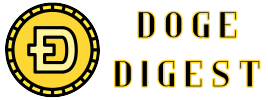In a world where billions remain untouched by traditional banking systems, the search for accessible and inclusive financial solutions has never been more urgent. Enter Dogecoin-a digital currency born from internet culture, often dismissed as a mere meme, yet quietly carving a niche in the realm of global finance. Beyond its playful origins, Dogecoin is increasingly recognized for its potential to bridge economic gaps, offering a decentralized alternative that transcends borders and socioeconomic barriers. This article explores how Dogecoin’s unique characteristics and growing community might be shaping new pathways toward financial inclusion on a global scale.
Understanding Dogecoin’s Unique Appeal in Underserved Communities
Dogecoin’s rise in popularity isn’t just a tale of internet memes and viral moments; it’s a nuanced story of accessibility and empowerment. In regions where traditional banking infrastructure remains sparse or exclusionary, Dogecoin offers a simple, low-cost gateway into the digital economy. Its minimal transaction fees and fast confirmation times remove common barriers faced by underserved populations, facilitating smoother peer-to-peer exchanges and remittances that conventional systems often complicate.
Several factors contribute to Dogecoin’s traction in these communities:
- Approachable Technology: Dogecoin’s user-friendly wallets and abundant educational resources make the cryptocurrency less intimidating for newcomers.
- Strong Community Support: The welcoming nature of its global user base helps foster trust and knowledge-sharing essential for adoption in underserved regions.
- Cultural Relevance: Its lighthearted branding resonates beyond the tech-savvy crowd, easing cultural resistance to new financial tools.
| Feature | Impact on Underserved Communities |
|---|---|
| Low Transaction Fees | Enables micro-payments & everyday use |
| Fast Confirmation | Improves reliability for urgent transfers |
| Community Engagement | Builds trust and spreads awareness |
Bridging the Financial Gap Through Accessible Cryptocurrency
In many parts of the world, traditional banking systems remain out of reach for millions due to high fees, stringent requirements, and limited infrastructure. Dogecoin, with its low transaction fees and fast confirmation times, has emerged as a practical alternative. It offers an approachable gateway into the digital currency realm, especially for communities where conventional financial services are either too expensive or simply unavailable. By lowering the barriers to entry, Dogecoin allows users to participate in the global economy without needing a bank account or credit history.
Key advantages that make Dogecoin stand out include:
- Decentralization, which empowers users with control over their own funds.
- A vibrant and supportive community that promotes adoption and education.
- Compatibility with numerous wallets and platforms, enhancing ease of use.
- Minimal transaction fees, making micro-transactions feasible worldwide.
| Feature | Benefit for Users |
|---|---|
| Fast Transaction Speed | Instant remittances without long wait times |
| Low Fees | Affordable transfers even with small amounts |
| Open-source Network | Transparent and secure financial environment |
| Global Accessibility | Financial services accessible beyond borders |
By fostering accessibility and inclusivity, Dogecoin is redefining how individuals worldwide can engage with their money. Its playful origins belie a serious potential: to bridge economic divides and empower underserved populations. As adoption grows, so does the promise of a future where financial freedom is not a privilege but a norm.
Evaluating Dogecoin’s Impact on Remittances and Cross-Border Transactions
In recent years, Dogecoin has emerged as a surprising contender in the realm of digital currencies aimed at streamlining remittances. Its low transaction fees and rapid confirmation times have positioned it as a practical alternative to traditional payment systems, particularly for cross-border money transfers. Unlike conventional financial institutions, which often charge substantial fees and suffer from slow processing times, Dogecoin offers an accessible solution that empowers senders and recipients alike, especially in developing regions where traditional banking infrastructure is limited.
Key advantages of leveraging Dogecoin in remittances include:
- Affordability: Transaction fees can be a fraction of those imposed by traditional money transfer operators.
- Speed: Transfers can be completed in minutes, bypassing the multi-day delays typically experienced in global banking networks.
- Accessibility: The decentralized network allows individuals without bank accounts to participate fully in the digital economy.
To better illustrate Dogecoin’s growing influence in this space, consider the comparison below, highlighting typical remittance costs and speeds across various platforms:
| Platform | Average Fee (%) | Transfer Time |
|---|---|---|
| Traditional Banks | 7-12% | 2-5 days |
| Money Transfer Operators | 5-8% | 1-3 days |
| Dogecoin | ~0.01% | ~10 minutes |
As Dogecoin continues to gain traction as a reliable medium for sending funds across borders, it is progressively contributing to global financial inclusion by bridging the gap between traditional banking and the underbanked populations worldwide. Its user-friendly nature and scalability demonstrate significant promise for redefining how remittances are sent and received in the modern economy.
Challenges and Opportunities in Integrating Dogecoin into Traditional Finance
Integrating Dogecoin into the backbone of traditional financial systems demands navigating a web of intricate challenges. Regulatory uncertainty remains one of the most formidable barriers, with varying global stances on cryptocurrencies creating a fragmented landscape. Financial institutions, typically risk-averse, are cautious about adopting a meme-originated asset, questioning its volatility and long-term viability as a transactional medium. Additionally, legacy payment systems are often incompatible with decentralized cryptocurrencies, requiring significant technological overhauls to achieve seamless interoperability.
Alongside hurdles, Dogecoin presents unique opportunities that could reshape financial accessibility worldwide. Its low transaction fees and swift confirmation times make it especially attractive for microtransactions and cross-border payments in emerging markets. The growing community-driven ecosystem around Dogecoin fosters grassroots adoption, where social engagement translates into real-world usage. By harnessing smart partnerships between crypto platforms and traditional banks, Dogecoin can act as a bridge, unlocking financial services for unbanked populations and reducing friction in international remittances.
Key factors influencing Dogecoin’s integration:
- Regulatory clarity and supportive frameworks
- Technological upgrades for scalability and security
- Consumer trust and education initiatives
- Collaborations between fintech, legacy banks, and regulators
| Aspect | Challenge | Opportunity |
|---|---|---|
| Regulation | Unclear policies across regions | Potential for standardized crypto compliance |
| Technology | Legacy infrastructure limits adoption | Integration with blockchain-based payment rails |
| User Trust | Volatility concerns and lack of awareness | Community engagement fostering loyalty |
Strategic Recommendations for Leveraging Dogecoin to Enhance Financial Inclusion
To harness Dogecoin’s full potential as a tool for financial inclusion, stakeholders must prioritize affordable transactional access. Its fast confirmation rates and minimal fees offer a compelling advantage over traditional banking avenues, especially in underbanked regions. Encouraging partnerships with local merchants and mobile payment platforms can seamlessly integrate Dogecoin into daily commerce, bridging the gap for individuals previously excluded from the formal financial system.
Empowering communities through targeted education campaigns is equally crucial. Familiarizing users with Dogecoin’s ecosystem enhances trust and practical understanding, reducing the barrier of technological unfamiliarity. Initiatives such as workshops, easy-to-use wallet interfaces, and multilingual resources will help diffuse misconceptions and foster widespread adoption. Notably, community-led programs often resonate deeper, cultivating grassroots advocacy that can accelerate momentum organically.
Below is a concise roadmap highlighting key strategic pillars to promote Dogecoin-driven financial inclusion:
| Strategic Pillar | Key Action | Benefit |
|---|---|---|
| Infrastructure | Develop lightweight wallets | Accessibility for low-end devices |
| Partnerships | Collaborate with local merchants | Increase daily usability |
| Education | Community training programs | Boost user confidence |
| Regulatory Engagement | Dialogue with policymakers | Promote supportive frameworks |
| Incentives | Micro-rewards for adopters | Encourage sustained use |
By aligning innovation with these strategic pillars, Dogecoin can evolve beyond a meme cryptocurrency into a potent enabler of equitable economic participation worldwide.
Q&A
Q&A: Dogecoin’s Role in Expanding Global Financial Inclusion
Q1: What is Dogecoin, and how did it start?
Dogecoin is a digital cryptocurrency that began as a playful spin-off of Bitcoin in 2013. Featuring the Shiba Inu dog from the “Doge” meme as its mascot, it was originally created as a lighthearted alternative to more serious cryptocurrencies. Despite its humorous origins, Dogecoin quickly gained a passionate community and became a widely recognized digital currency.
Q2: How does Dogecoin differ from traditional currencies?
Unlike traditional fiat currencies issued by governments, Dogecoin operates on a decentralized blockchain. This means transactions occur peer-to-peer without intermediaries like banks. It’s also notable for its low transaction fees and faster processing times compared to many other cryptocurrencies, making it more accessible for everyday microtransactions.
Q3: In what ways is Dogecoin contributing to global financial inclusion?
Dogecoin’s accessibility and low cost make it an appealing option for people in regions with limited banking infrastructure. It lowers barriers for individuals who might otherwise be excluded from the formal financial system, enabling them to send, receive, and store value digitally. Additionally, communities around the world have used Dogecoin for crowdfunding social causes, supporting small businesses, and facilitating remittances.
Q4: Why is Dogecoin considered more user-friendly for new cryptocurrency users?
Dogecoin’s simplicity and active community support make it easier for newcomers to dip their toes into the crypto space. Its reputation as a fun and approachable currency contrasts with the often complex and intimidating aura surrounding other cryptocurrencies, helping demystify digital finance for broader audiences.
Q5: What challenges does Dogecoin face in promoting financial inclusion?
Despite its benefits, Dogecoin faces hurdles such as price volatility, limited regulatory clarity, and technology adoption barriers in some regions. Moreover, skeptics question whether a meme-based currency can sustain long-term financial utility. To truly expand inclusion, ongoing efforts in education, infrastructure, and regulatory collaboration are essential.
Q6: How might Dogecoin evolve to further support underserved populations globally?
Future developments could focus on integrating Dogecoin into more user-friendly wallets and payment platforms tailored for emerging markets. Partnerships with nonprofits and local businesses could amplify its reach, while innovations to stabilize its value or combine it with blockchain-based identity solutions might enhance trust and usability, further cementing Dogecoin’s role in creating a more inclusive financial future.
The Conclusion
As Dogecoin continues to evolve beyond its origins as a playful internet meme, its potential to bridge gaps in global financial systems becomes increasingly evident. By lowering barriers to entry and fostering a community-driven spirit, Dogecoin exemplifies how innovative digital currencies can contribute to broader financial inclusion. While challenges remain in scalability, regulation, and adoption, the story of Dogecoin offers a glimpse into a future where access to financial tools is less about geography or status-and more about connectivity, creativity, and shared possibility. In the grand tapestry of global finance, Dogecoin might just be a spark lighting the way toward a more inclusive tomorrow.







